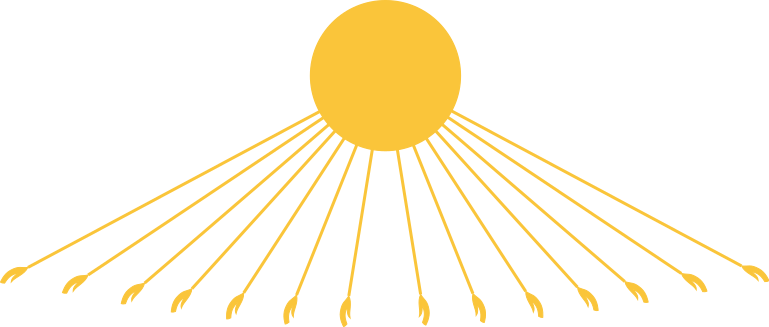On January 14th, 2011 Zine El Abidine Ben Ali fled to Tunisia, seeking refuge in Saudi Arabia, not more than a month after Mohammed Bouazizi’s self-immolation on 17 December 2010 in Sidi Bouzid, Tunisia. Bouazizi’s self-immolation is widely held to have served as a catalyst for what would quickly become successive waves of revolutions across the Middle East called the Arab Spring.
Mohammed Bouazizi, whose story struck a powerful cord among fellow Tunisians, suffered a terrible fate. After his father’s premature death, his mother married his father’s brother, who later became sick. Bouazizi dropped out of high school. The land his father bequeathed the family barely produced enough produce for the family, let alone for sale. After defaulting on a loan to the bank for an irrigation system to increase the yield on that land, the bank seized the land, causing Bouazizi to seek work as a merchant.
On the day of his self-immolation, the police, whom the people of Tunisia described as having harassed Bouazizi for years, sent a female officer to slap him in the face, stealing his wares. After his complaint fell on deaf ears at the police chief’s headquarters, Bouazizi set himself ablaze, causing Tunisians, workers and youths, throughout the country, who became aghast at the deplorable social, economic or political conditions driving his suicidal act, began to protest en masse for days upon days in what is now described as the Jasmine revolution.
The primary motivation for Zine El Abidine Ben Ali’s decision to leave the country followed the military’s decision to seize control of Tunisia’s main airport after asserting control over the country’s airspace. Shortly after his departure, Mohammed Ghannouchi, the prime minister, evoked Chapter 56 of the Tunisian constitution to assume the role of interim president. Within the span of not more than a month, a regime, which ruled over Tunisia for decades, fell.
The fall of Zine El Abidine Ben Ali sent shockwaves throughout the Middle East. During the tent protests in Israel, for instances, Israelis celebrated Mohammed Bouazizi, writing poems about him in Hebrew. Israelis, who set up, maintained, or populated tents on Rothschild’s street in Tel-Aviv published these poems in a book called, The Revolution Songbook : Tents Poetry. On page 8, Schar Merav-Merdachi wrote a poet about Bouazizi in Hebrew. In her poem, she writes from the first person singular, as though she were Bouazizi herself. She sings, “I am Mohammed Bouazizi.” She continues, “I live on in your world! I want to tell you that you can inspire an uprising anywhere in the world, if you want.” These are a few of the lines Israeli wrote in praise of what Mohammed Bouazizi’s self-immolation initiated not just in Tunisia but in Israel.
As one of the revolutions in the Arab Spring, there are many causes for the Arab Spring. Inequality is one of the many causes, especially in Tunisia. In addition, Wikileaks is widely held to be one of the major causes of the Tunisian revolution, especially since only a few weeks prior to Bouazizi’s self-immolation, five major newspapers, Spain’s El País, France’s Le Monde, Germany’s Der Spiegel, the United Kingdom’s The Guardian, and the United States’ The New York Times published more than 220 of the 251, 287 diplomatic cables. The release of the diplomatic cables laid bare another one of the major causes of the revolution, Tunisia’s unbridled corruption.
The Arab Spring’s revolutions are not unlike other revolutions. Just as Russia’s initial revolution in 1905 did not immediately result in a workers’ state, the revolution of 1917 did. It is only a matter of time before the class forces unleashed by the explosion of class pass from a “sharp feeling that they can no longer endure the old regime” to the formulation of its own program. As Trotsky noted, “The fundamental political process of the revolution thus consists in the gradual comprehension by a class of the problems arising from the social crisis—the active orientation of the masses by a method of successive approximations.”
In that respect, Tunisia’s current regime bears many similarities to Zine El Abidine Ben Ali’s. Unemployment in the country continues to soar, while real GDP growth continues to plummet, while Tunisia’s ruling elites continue to grow richer. Coupled with soaring food prices, mass death from the regime’s inability to provide basic health care to Tunisians to treat the Covid 19 pandemic, the socioeconomic factors which gave rise to the initial spark for a revolutionary fire continue to smolder and burn within the population.
In the face of these factors, Said, who is the country’s current ruler, has sought to advance the development of a dictatorship in many ways similar to the corrupt dictatorship about which one reads from the diplomatic cables released to the public by Wikileaks on the eve of the Arab Spring. Throughout the past six months alone, Said redoubled his efforts at establishing a dictatorship by firing judges, ratifying a new constitution, dissolving parliament, in short, consolidating his power anywhere he can, reflecting a continuation of the corruption Zine El Abidine Ben Ali fostered.
The District Assembly calls upon the working people of the Arab Spring, especially those in Tunisia, to address the fundamental political process of the revolution. It calls upon workers of the Middle East to study the history of the Fourth International, to establish rank-and-file assemblies, and begin to formulate a program of its own.
